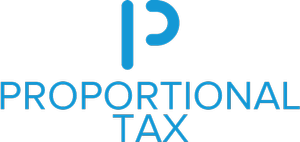Personal income tax is essentially the tax charged on an individual’s personal income. Some mistakenly think that a given rate applies only to the entirety of that person’s income, when in reality it applies to parts. For instance, a person with annual compensation of $75,000 pays a personal income tax rate of 10% on that income. However, this is not the same as a corporate income tax rate on the same income because the portion of the salary that is paid out to the company is deducted. Instead, separate rates apply to different parts.
When calculating personal income tax, many people mistakenly make errors in their computations. Some simply double count some expenses and do not include them, while others do not account for other types of receipts or write-offs. Other people are not sure what to count as a deduction and therefore do not include certain deductions which they could potentially be eligible to receive. As a result of these oversights, there are mistakes made when applying the tax rates to a person’s personal income and the end result is a calculation which understates or overstates the actual amount of their taxes due.
Most individuals are not even aware of the existence of the various tax deductions which they may be eligible to take. When calculating personal income tax, it is wise to gather together all of the receipts that you can to make your calculations more accurate and thorough. There are many resources online that can assist you in collecting receipts if necessary. Once you have the receipts in hand, you should also collect information such as the types of expenses which were incurred as well as the amount of money that was earned from each of those expenses.
One important area of personal income tax, which most people tend to overlook is business income taxes. Business owners are subject to income taxes when receiving dividends, interest, rent on property, and when they receive interest from loans. When calculating these business taxes, do not forget to include any employee perks that were earned such as annual staff training, medical benefits, free travel and so forth. When business owners are able to deduct all of their business taxes, it is vital to remember that they are only liable to paying that tax at the end of the year. Therefore, it is prudent to keep all receipts and make copies for tax purposes.
For individuals who live in different states, there are differences in the way that the states calculate personal state income tax. Each state has different laws regarding their own personal state income tax calculation. Therefore, it is best to research and learn about the actual states’ calculations before applying the federal taxable income rate to your personal situation. Each state has different exemption laws, which also have a bearing on how their personal state tax rate is calculated. Some states allow taxpayers to deduct their entire private foundation along with assets in the decedent’s estate, while other states limit this deduction.
The nine states that calculate taxes based on income with a progressive tax system are Alaska, Delaware, Florida, Hawaii, Kansas, Kentucky, Montana, New Hampshire, Oregon, and South Carolina. These nine states each have different taxation rates, which can be significant when comparing states. Residents of the states that do not use a progressive tax system will pay the same amount whether they earn over or under a certain amount. Residents of the states that use a progressive tax system will pay taxes on income based on their personal net income from work regardless of whether they earn more or less than the state’s personal income tax rate.
There are many professional organizations that can help you with taxes owed to both the federal government and to your state. Many times, these organizations can also assist you with filing your federal and state income tax returns as well as other necessary paperwork. These organizations can provide assistance with filing an online tax return, preparation of an IRS tax return, or in cases where you need assistance with a tax audit. If you cannot afford to hire a tax attorney, many organizations offer free tax advice to individuals and companies through their websites. While there is no guarantee that your tax situation will be handled quickly and easily, using an organization that specializes in income tax issues will most likely make things run much more smoothly.
Those states that do not charge a personal income tax are considered “regulatory” states. Taxation here is usually based on property taxes and personal income taxes. These “regulatory” states have higher tax rates than “standard” states because of the need for revenue from outlying areas and the difficulty of collecting income taxes from these outlying areas. Although the rates will generally be higher, they do have lower income limits, which can be helpful if you have children in one of these “regulatory” states.
